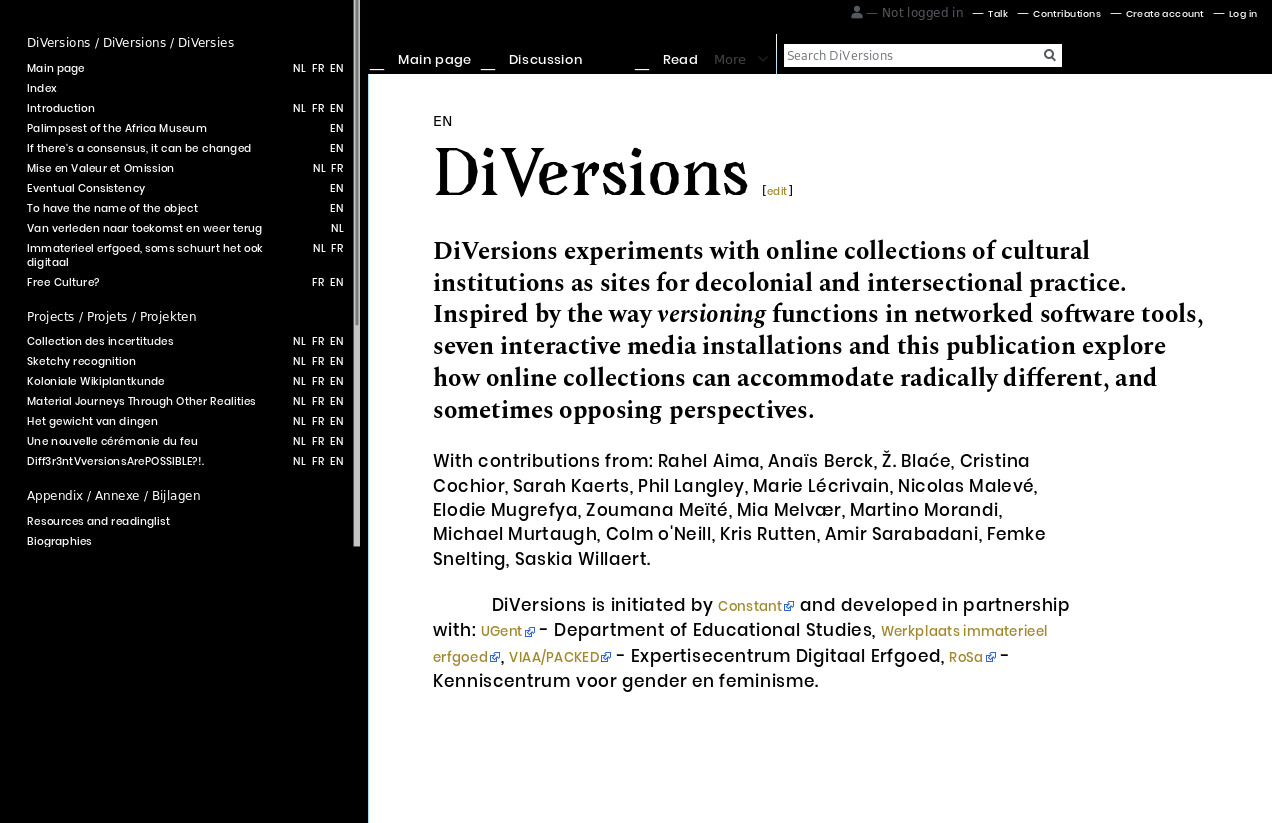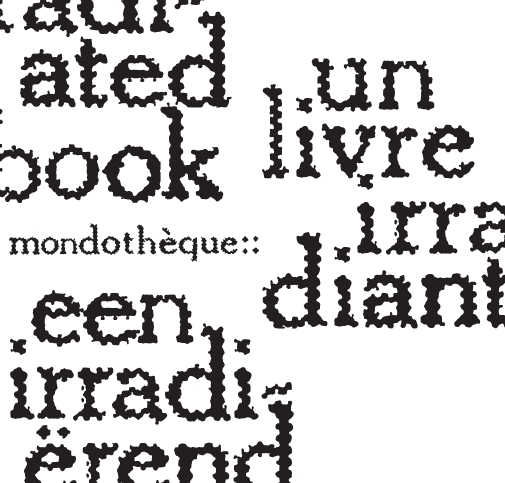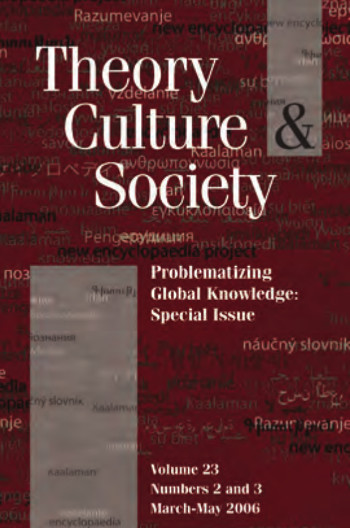DiVersions (2019) [NL, FR, EN]
Filed under wiki book | Tags: · archive, augmented reality, classification, collecting, cultural heritage, data, database, decolonization, interface, intersectionality, queer, software

“DiVersions experiments with online collections of cultural institutions as sites for decolonial and intersectional practice. Inspired by the way versioning functions in networked software tools, seven interactive media installations and this publication explore how online collections can accommodate radically different, and sometimes opposing perspectives.”
With contributions from: Rahel Aima, Anaïs Berck, Ž. Blaće, Cristina Cochior, Sarah Kaerts, Phil Langley, Marie Lécrivain, Nicolas Malevé, Elodie Mugrefya, Zoumana Meïté, Mia Melvær, Martino Morandi, Michael Murtaugh, Colm o’Neill, Kris Rutten, Amir Sarabadani, Femke Snelting, Saskia Willaert.
Edited by Constant (Elodie Mugrefya, Femke Snelting)
Publisher Constant, Brussels, October 2019
Free Art License 1.3
Mondothèque: A Radiated Book / Un livre irradiant / Een irradiërend boek (2016) [EN, FR, NL]
Filed under book, wiki book | Tags: · architecture, archive, book, classification, data, document, google, internet, knowledge, library, web

“This Radiated Book started three years ago with an e-mail from the Mundaneum archive center in Mons, Belgium. It announced that Elio di Rupo, then prime minister of Belgium, was about to sign a collaboration agreement between the archive center and Google. The newsletter cited an article in the French newspaper Le Monde that coined the Mundaneum as ‘Google on paper’. It was our first encounter with many variations on the same theme.
The former mining area around Mons is also where Google has installed its largest datacenter in Europe, a result of negotiations by the same Di Rupo. Due to the re-branding of Paul Otlet as ‘founding father of the Internet’, Otlet’s oeuvre finally started to receive international attention. Local politicians wanting to transform the industrial heartland into a home for The Internet Age seized the moment and made the Mundaneum a central node in their campaigns. Google — grateful for discovering its posthumous francophone roots — sent chief evangelist Vint Cerf to the Mundaneum. Meanwhile, the archive center allowed the company to publish hundreds of documents on the website of Google Cultural Institute.
While the visual resemblance between a row of index drawers and a server park might not be a coincidence, it is something else to conflate the type of universalist knowledge project imagined by Paul Otlet and Henri Lafontaine with the enterprise of the search giant. The statement ‘Google on paper’ acted as a provocation, evoking other cases in other places where geographically situated histories are turned into advertising slogans, and cultural infrastructures pushed into the hands of global corporations.
An international band of artists, archivists and activists set out to unravel the many layers of this mesh. The direct comparison between the historical Mundaneum project and the mission of Alphabet Inc speaks of manipulative simplification on multiple levels, but to de-tangle its implications was easier said than done. Some of us were drawn in by misrepresentations of the oeuvre of Otlet himself, others felt the need to give an account of its Brussels’ roots, to re-insert the work of maintenance and caretaking into the his/story of founding fathers, or joined out of concern with the future of cultural institutions and libraries in digital times.” (from the Introduction)
Editorial team: André Castro, Sînziana Păltineanu, Dennis Pohl, Dick Reckard, Natacha Roussel, Femke Snelting, Alexia de Visscher
Publisher Constant, Brussels, Sep 2016
Free Art License 1.3
ISBN 9789081145954, 9081145959
225 pages
HTML (updated on 2019-5-31)
Git
PDF, PDF (43 MB)
Theory, Culture & Society 23(2-3): Problematizing Global Knowledge (2006)
Filed under book, journal | Tags: · aesthetics, archive, assemblage, body, classification, culture, encyclopedia, globalisation, information, knowledge, knowledge production, language, library, life, logic, media, modernity, network, public sphere, race, religion, science, space, technology, theory, time, translation, university, vitalism

In this special issue the TCS editorial board, along with colleagues in East and South-East Asia and other parts of the world, ventured in ‘encyclopaedic explorations’ in order to “rethink knowledge under the impact of globalization and digitization. The issue features over 150 entries and supplements on a range of topics which are addressed in terms of their relevance to knowledge formation, by contributors writing from a wide range of perspectives and different parts of the world. The entries and supplements are gathered under three main headings: metaconcepts, metanarratives and sites and institutions.”
Edited by Mike Featherstone, Couze Venn, Ryan Bishop and John Phillips, with Pal Ahluwalia, Roy Boyne, Beng Huat Chua, John Hutnyk, Scott Lash, Maria Esther Maciel, George Marcus, Aihwa Ong, Roland Robertson, Bryan Turner, Shiv Visvanathan, Shunya Yoshimi
With an Introduction by Mike Featherstone and Couze Venn
Publisher Sage, 2006
616 pages

